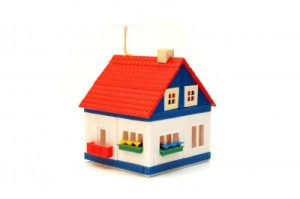With home prices dropping, minimal interest rates and the cost of rental properties on the rise, now may be the time for renters to seriously consider buying a house, according to HouseSavvy, a premier real estate and relocation organization headquartered in Massachusetts.
When the housing bubble burst in 2006, the cost of buying a house was considerably higher than renting that same house in most areas. Today, the opposite is true in many states, particularly those hit hardest in the housing crash – namely Arizona, California, Florida and Nevada and right behind them, Illinois, New York and New Jersey.
Rental cost has remained on the high side in many communities within these states, making it more monetarily advantageous for renters to buy a home that has dropped in value from the highs of five years ago, to the tune of the national average of 30%. Combine the decrease in home prices, high rental costs, and historically low interest rates, and the time may be ideal for renters to consider buying.
To further underscore the advantages to buying, consider a recent study by Deutsche Bank that reported the share of income Americans are now paying to own their homes is 9.8% after-tax mortgage, taxes, and insurance payments – down from 17.2% at the housing bubble’s peak. Conversely, the study further says that in 28 out of the country’s 54 major markets, it’s now less expensive to pay a mortgage and other major housing costs than to rent the same house.
For those on the fence of buying or renting, conducting an analysis is not difficult. Start with the total cost to rent a home or apartment – “total” means not only the rent, but any related cost such as tenant’s insurance, and maintenance and/or association dues. Use that number as a starting point or base for comparison.
The next step is to determine the cost of buying comparable housing; for this a little research is necessary. Look at the houses for sale in your price range and find out the price similar homes have been selling for recently. A local Realtor can help in this regard. Once the price of the home has been determined, ask the Realtor what you can expect in the way of real estate taxes, utilities and insurance cost for a home at this price. Lastly, talk to a local bank or mortgage broker to ascertain the availability and cost of the mortgage needed to buy the home.
Ultimately, real estate is local in nature. National, regional and municipal markets are all “macro markets” comprised of thousands of micro markets specific made up of communities, neighborhoods and price ranges, where market conditions can vary significantly from the macro markets in which they exist. Even in distressed market areas, healthy micro markets do exist!
About HouseSavvy
HouseSavvy helps home buyers and sellers save time and money by analyzing current real estate market conditions and helping them develop a winning plan and strategy before they start the process. They call it “Start Smart with HouseSavvy.” This service is provided at no cost or obligation. Interested parties can learn more about HouseSavvy by visiting www.housesavvy.com.

